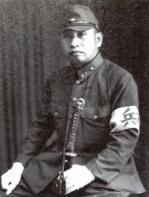From freeconcord.org:
The Concord Monitor’s Felice Belman writes on her blog from the newspaper’s website that the Concord police have stopped including narratives of the events surrounding an arrest in releases to the press. Recently, they began only including the name and charges against an individual who has been seized by their organization. This is to have stemmed from complaints filed by an attorney on behalf of city councilor Fred Keach, who was arrested for attempting to drive while intoxicated in October 2010. Keach was unhappy with the amount of detail provided by the police in the account of the arrest as published in the Monitor.
The article also overviews that a statutory change pending in the NH legislature will specify the amount of information to be released by police following an arrest. It is hard to imagine anyone would support a more secretive local police force that didn’t work for the police or prosecutor’s office. In case you may be curious as to what a typical arrest narrative given to a defendant would look like, here’s a scan of the report I received with my discovery packet from the Chalking 8 trial.



